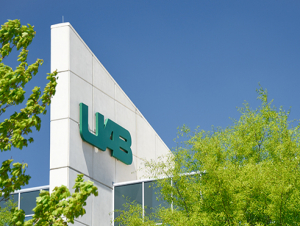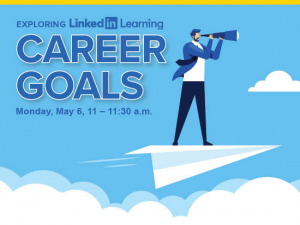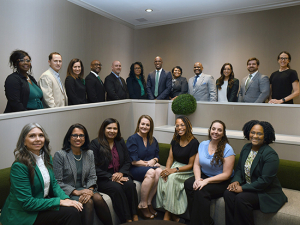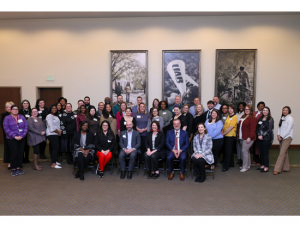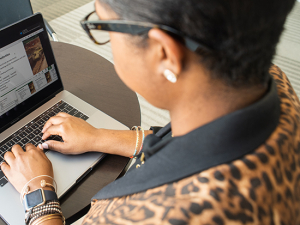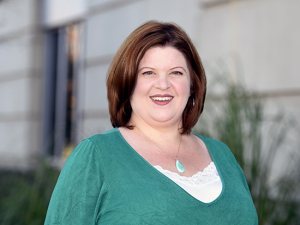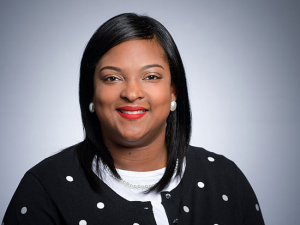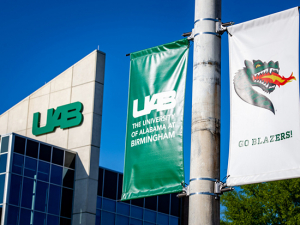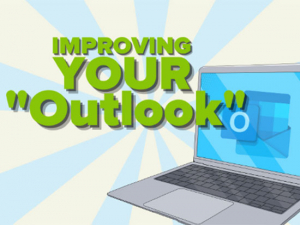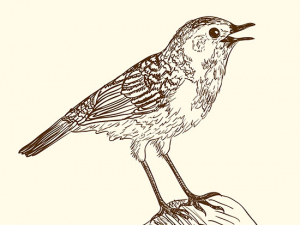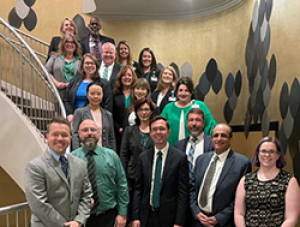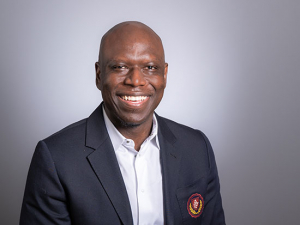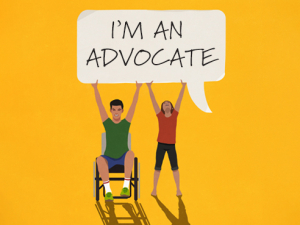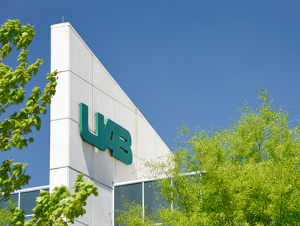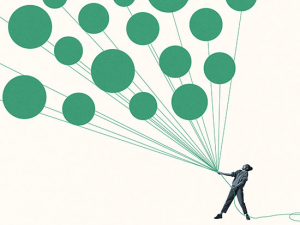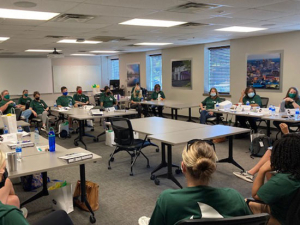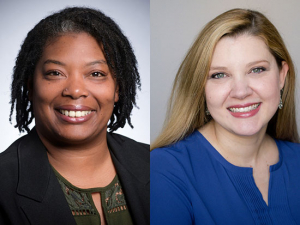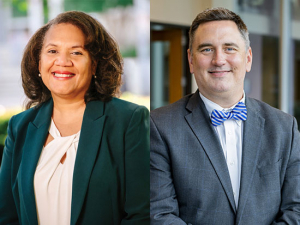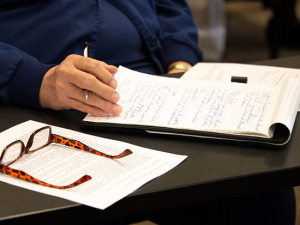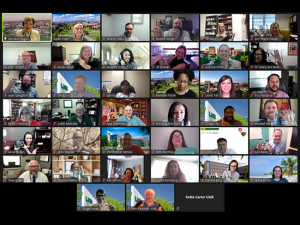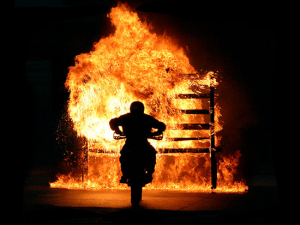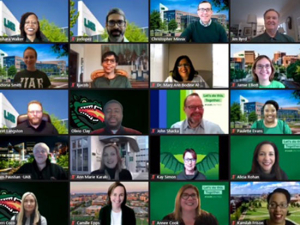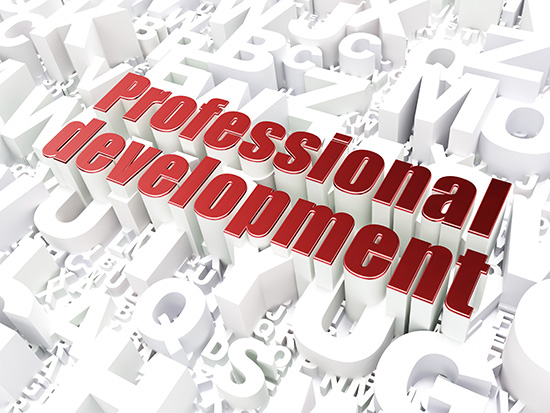 Lisa Schwiebert, Ph.D., associate dean for postdoctoral education, knows only about 10 percent of doctoral-level scientists in the biomedical sciences will find tenure-track positions. That’s why the Office of Postdoctoral Education (OPE) will host five networking events on career options beyond academic research for postdoctoral scientists, graduate students and undergraduates.
Lisa Schwiebert, Ph.D., associate dean for postdoctoral education, knows only about 10 percent of doctoral-level scientists in the biomedical sciences will find tenure-track positions. That’s why the Office of Postdoctoral Education (OPE) will host five networking events on career options beyond academic research for postdoctoral scientists, graduate students and undergraduates.
“The numbers tell a pretty tough story that very few are going to get tenure-track positions,” Schwiebert said. “So, trainees have really started to look at opportunities in other areas. These career summits will help connect them to people in those areas and give them more information and also a networking opportunity.”
The idea for the series evolved from conversations about recommendations in reports such as the 2012 National Institutes of Health Future of the Biomedical Workforce Report, which stressed the importance of increasing awareness of careers outside academia.
‘Forging collaborations’
Schwiebert said the series is an example of OPE making lemonade from lemons. The original goal was to create an official program with funding through the National Institutes of Health, but the university was not awarded one of the Broadening Experiences in Scientific Training grants. However, with the help of different schools, departments and organizations from across campus, elements of the program are moving forward.
“We didn’t get the grant, but that might be OK,” Schwiebert said. “It forced us to find other funding, which got us out talking to people across campus and forging collaborations.”
The collaboration strategy has worked: The science communication networking event is sponsored by not only the OPE, but also the School of Medicine, College of Arts and Sciences, Vice Provost for Student and Faculty Success, The Graduate School, and the Center for Clinical and Translational Science.
“Our organizing committee fanned out and went knocking on doors,” Schwiebert said. “We told them what we were doing and that they could get involved if they were interested.”
The sponsors for each networking event will vary depending on the topic: science communication, business and entrepreneurship, public policy and government, research administration and academic research.
First: communicating science
The first networking event will be held noon Oct. 3 in the UAB Hospital West Pavilion Conference Center. A panel of science communication leaders will discuss the field until 2 p.m., when attendees and panelists will have time to network; a social event will follow at 4 p.m. at Fuego in Five Points South. Registration is not required, and lunch will be provided. Undergraduates, graduate students, postdoctoral fellows and faculty are encouraged to attend.
The panelists for the science communication seminar range from freelance writers to entrepreneurs.
Maria Broadfoot, Ph.D., a freelance science writer, has covered varying topics — from the life-sustaining properties of sunlight to the ethical issues surrounding ancestry testing. She has a doctorate in genetics and molecular biology from the University of North Carolina at Chapel Hill and completed a postdoctoral fellowship in clinical molecular genetics at the NIH.
Russ Campbell is the communications officer for the Burroughs Wellcome Fund and the co-founder of the Science Communicators of North Carolina. He has a master’s degree in creative writing from the University of Pennsylvania.
Ben Young Landis is a science communicator for the Western Ecological Research Center of the United States Geological Survey in Sacramento, California, for which he writes and edits science news and designs and manages Web pages. He is co-founder of Capital Science Communicators. He has a master’s degree in environmental management, environmental economics and policy from Duke University.
Kirsten Sanford, Ph.D., is a science communications serial entrepreneur, who has launched and produced several science-related radio shows, podcasts and Web video shows. In 2005 she was an American Association for the Advancement of Science Mass Media Science & Engineering fellow, producing health and science news for TV station WNBC in New York. Sanford has a doctoral degree in molecular, cellular and integrative physiology from the University of California, Davis.
Information about upcoming networking events will be posted online.


